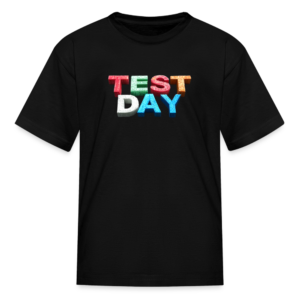Your cart is currently empty!
US Court Blocks TikTok’s Efforts to Stop Looming Ban
·
Free shipping over $50 for the month of April using code aprilship
In a pivotal ruling, a US court has denied TikTok’s request to temporarily halt the looming US ban on the popular social media platform. This decision underscores the ongoing tension between national security concerns and freedom of expression in the digital age. Below, we explore the key aspects of the case, its implications, and the broader context surrounding this controversial decision.
Background of the TikTok Ban
The ban stems from concerns raised by US lawmakers and regulatory agencies about TikTok’s ownership by ByteDance, a Chinese tech giant. Critics allege that the platform poses significant national security risks, arguing that user data collected by TikTok could potentially be accessed by the Chinese government.
Since its launch in 2016, TikTok has amassed over 150 million active users in the United States alone, becoming a cultural phenomenon. However, its rapid growth and ties to China have placed it under intense scrutiny. The proposed ban is part of a broader effort to address perceived vulnerabilities in America’s tech infrastructure.
The US government’s stance has been clear: ByteDance must divest its US operations or face a nationwide ban. In response, TikTok has consistently denied allegations of data misuse and has taken steps to address privacy concerns, including plans to store US user data on domestic servers managed by Oracle.
TikTok’s Legal Efforts to Block the Ban
TikTok has fought the ban in court, citing First Amendment protections and economic concerns. The company contends that the ban amounts to censorship and violates users’ rights to free speech and expression. Additionally, TikTok argues that the proposed action would cause irreparable harm to its business and the millions of creators who rely on the platform for income and community engagement.
As part of its legal strategy, TikTok sought an injunction to temporarily block the implementation of the ban while the case proceeds. However, the court’s rejection of this request has left the platform’s future uncertain.
Key Points from the Court’s Ruling
The court’s decision was based on several critical factors:
- National Security Over Free Speech: While acknowledging the First Amendment implications, the court emphasized the importance of addressing national security concerns. The judge noted that the potential risks posed by TikTok’s data practices outweighed the immediate harm to the company and its users.
- Lack of Evidence for Irreparable Harm: The court found TikTok’s claims of economic harm insufficient to justify an injunction. The judge argued that the company failed to demonstrate that the ban would lead to irreversible damage that could not be addressed through later legal remedies.
- Balancing Public Interest: The ruling highlighted the need to balance the public’s interest in free expression with the government’s responsibility to protect national security. The court sided with the latter, deeming it a more pressing concern.
Implications of the Ruling
The court’s decision marks a significant setback for TikTok and sets the stage for further legal battles. Here are the potential implications:
- Precedent for Tech Regulation: The ruling could establish a precedent for how courts handle cases involving foreign-owned tech companies and national security. This may influence future decisions on similar platforms.
- Impact on Creators and Businesses: TikTok’s creators and advertisers face uncertainty as the platform’s fate hangs in the balance. Many influencers have built careers on TikTok, and businesses rely on its advertising reach to connect with younger audiences.
- US-China Tech Tensions: The decision reflects broader geopolitical tensions between the US and China. It signals that the US government is willing to take drastic measures to curb the influence of Chinese tech companies.
- Rise of Alternative Platforms: As TikTok’s future remains uncertain, users may begin migrating to other platforms. This could accelerate growth for competitors like Instagram Reels, YouTube Shorts, and emerging apps.
The Bigger Picture: National Security vs. Digital Freedom
TikTok’s case is emblematic of a larger debate about the intersection of technology, privacy, and national security. As governments worldwide grapple with the implications of a digital-first society, they face tough questions about how to regulate tech companies while preserving fundamental freedoms.
Critics argue that bans like this set a dangerous precedent, allowing governments to restrict access to platforms based on unproven allegations. They warn of a slippery slope toward increased censorship and diminished innovation. On the other hand, proponents of the ban emphasize the need to prioritize national security in an era where data is as valuable as oil.
What’s Next for TikTok?
With its request for an injunction denied, TikTok’s legal team is expected to appeal the decision. The company remains committed to fighting the ban and has urged its users and creators to advocate for its continued operation in the US.
Meanwhile, the US government continues to push for ByteDance to divest its American operations. Should this occur, TikTok could potentially remain accessible to US users under new ownership. However, finding a buyer acceptable to both parties has proven challenging.
Conclusion
The US court’s rejection of TikTok’s request to halt its pending ban is a critical moment in the ongoing clash between national security and digital freedom. While the legal battle is far from over, the decision underscores the growing complexities of regulating global tech giants in an interconnected world.
For TikTok’s millions of US users, creators, and business partners, the ruling raises questions about the platform’s future. As the debate unfolds, it will serve as a case study in how democracies navigate the challenges of safeguarding security without stifling innovation and expression.
Stay updated on this evolving story, and share your thoughts on the future of digital platforms in a rapidly changing world.
Via https://finance.yahoo.com/news/us-court-rejects-tiktok-request-234205095.html
-

Hungry and Humble Football Player Flapping Arms Touchdown Celebration Unisex Classic T-Shirt #philly
$19.99 Select options This product has multiple variants. The options may be chosen on the product page -

Africatown in Philly Phrase Unisex Classic T-Shirt
$13.99 Select options This product has multiple variants. The options may be chosen on the product page -

Vintage Funny Cat Selfie UFO Alien Invasion Unisex Classic T-Shirt
$13.99 Select options This product has multiple variants. The options may be chosen on the product page -

Vintage Philly Underdogs German Shepherds Unisex Classic T-Shirt
$9.99 Select options This product has multiple variants. The options may be chosen on the product page -

Voxel Art Style Test Day Kids’ T-Shirt
$14.99 Select options This product has multiple variants. The options may be chosen on the product page
————————————————
We use AI GPT Chatbots to help with our content and may get some things wrong.
————————————————-




 Why We Love PinkPantheress’s Unique Production Style: The Future of Music Vibes
Why We Love PinkPantheress’s Unique Production Style: The Future of Music Vibes Why Are Oceans Salty But Rivers Fresh? The Secret to Earth’s Survival
Why Are Oceans Salty But Rivers Fresh? The Secret to Earth’s Survival 

